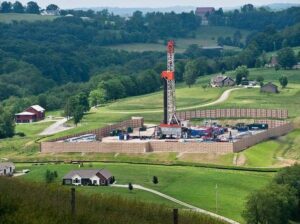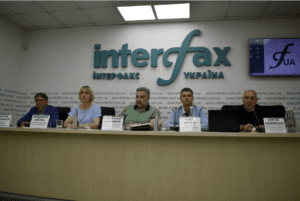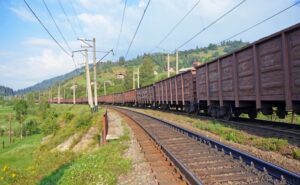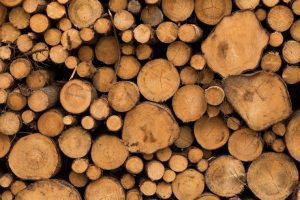
US President Donald Trump has lifted the moratorium on the issuance of new liquefied natural gas (LNG) export licenses imposed by his predecessor Joe Biden. The US Department of Energy reported that it is returning to the normal regime of reviewing export applications in accordance with Trump’s order.
“The Department has been instructed to resume reviewing applications for the export of US LNG to countries that do not have a free trade agreement with the United States. The proper review of export applications is required by law and must be carried out accordingly,” the Energy Ministry said in a statement.
In December, the agency published the results of a study on LNG exports and set February 18 as the deadline for public comments on it. Now the Ministry of Energy has decided to extend the comment period until March 20, 2025.
Earlier, the Experts Club think tank, Brian Mefford and Maxim Urakin, released a video analysis on what changes are expected to occur in US domestic and foreign policy under Trump, the video is available on the Experts Club YouTube channel – https://youtu.be/W2elNY1xczM?si=MM-QjSqGce4Tlq6T
EXPERTS CLUB, EXPORT, GAS, LICENSE, MORATORIUM, TRUMP, URAKIN, Меффорд

British Prime Minister Rishi Sunak intends to return the moratorium on hydrocarbon production by hydraulic fracturing (HF) in England, writes the Financial Times newspaper.
The ban, in place since November 2019, was lifted by the Liz Truss government in September. Then Truss explained this decision by the fact that the energy security of the country should become an absolute priority.
Sunak, who spoke in the House of Commons on Wednesday, said he supported the Conservative Party’s 2019 public declaration saying fracturing in England would not be allowed “until science clearly shows it can be done safely.” “.
The UK has halted hydraulic fracturing after a series of tremors were recorded in the country’s only shale well near Blackpool in northwest England.

Associations of Ukrainian manufacturers call on the Ministry of Infrastructure of Ukraine to impose a moratorium on raising tariffs for rail freight traffic for the period of martial law and six months after its termination.
“There was no real discussion between shippers and the carrier about a compromise solution to increase tariffs – we were simply presented with a fact. When Ukrzaliznytsia announced the discussion of raising tariffs by 70%, the order to increase tariffs had already been signed. We had specific proposals: to introduce a moratorium for the period of martial law and six months after it on the increase in tariffs within the borders of Ukraine, and all related services,” Liudmyla Kripka, the Executive Director of the Ukrcement Association, said at a press conference at the Interfax-Ukraine agency on Thursday.
According to her, Ukrzaliznytsia did not take into account the transportation of raw materials, coal, fillers in the infrastructure component of transportation, and did not include the tariff distance, which is why the cost of the final product will increase more significantly than in the carrier’s forecast.
“The impact on the cost of the final product will be much higher than presented by Ukrzaliznytsia. On the example of cement: for us, the main raw material is limestone, and there the highest figure is 55%. Other industries fell into the values of 0-13%,” she said.
In addition, from August 1, the calculation for the use of wagons will be changed to the actual one instead of the planned one, which will also increase the costs of shippers due to delays in border crossings, the expert noted.
Oleh Misiuk, a representative of the Ukrainian Lime Industry Association, pointed out that the decision to raise tariffs would have a significant impact on the lime market, which is already undergoing a significant decline in production volumes.
“Before the war, the cost of delivery from the west of Ukraine to Dnipro was UAH 400 per tonne, now it is UAH 650. With a producer price of up to UAH 300/tonne, the consumer overpays another UAH 200-250 from July 1. In general, lime production has fallen from the pre-war 1.2 million tonnes per month to 350,000 tonnes in May-June. The decision of Ukrzaliznytsia to increase tariffs will hit the market even harder, we expect a fall by another 30-40%,” he said.
MISIUK, MORATORIUM, RAIL FREIGHT, TARIFF, UKRAINIAN PRODUCERS ASSOCIATIONS, UKRCEMENT, UKRZALIZNYTSIA, КРИПКА

Associations of Ukrainian manufacturers call on the Ministry of Infrastructure of Ukraine to introduce a moratorium on raising tariffs for rail freight for the period of martial law and 6 months. after its termination.
“There was no real discussion between shippers and the carrier about a compromise solution to increase tariffs – we were simply presented with a fact. When Ukrzaliznytsia announced the discussion of raising tariffs by 70%, the order to increase tariffs had already been signed. We had specific proposals: to introduce a moratorium for the period of martial law and 6 months after on the increase in tariffs within the borders of Ukraine, and all related services,” said Ludmila Kripka, executive director of the Ukrcement association, at a press conference at the Interfax-Ukraine agency on Thursday.
According to her, UZ did not take into account the transportation of raw materials, coal, fillers in the infrastructure component of transportation, and did not include the tariff distance, which is why the cost of the final product will increase more significantly than in the carrier’s forecast.
“The impact on the cost of the final product will be much higher than presented by UZ. On the example of cement: for us, the main raw material is limestone, and there the highest figure is 55%. Other industries fell into the values of 0-13%,” Kripka said.
In addition, from August 1, the calculation for the use of wagons will be changed to the actual one instead of the planned one, which will also increase the costs of shippers due to delays in border crossings, the expert noted.
Oleg Misyuk, a representative of the Ukrainian Association of the Limestone Industry, pointed out that the decision to raise tariffs would have a significant impact on the lime market, which is already undergoing a significant decline in production volumes.
“Before the war, the cost of delivery from the west of Ukraine to the Dnieper was 400 UAH per ton, now it is 650 UAH. With a producer price of up to 300 UAH / t, the consumer overpays another 200-250 UAH from July 1. In general, lime production has fallen from pre-war 1, 2 million tons per month to 350 thousand tons in May-June. The decision of UZ to increase tariffs will hit the market even harder, we expect a fall by another 30-40%,” he said.
The expert also noted that the increase in tariffs may put Ukrainian lime producers in a non-competitive position in front of foreign companies interested in entering the Ukrainian market.
At the same time, the increase in the cost of logistics for grain exporters, coupled with the blocking of Ukrainian ports, can play a decisive role in the bankruptcy of most agricultural producers, says Nikolai Gorbachev, president of the Ukrainian Grain Association.
“With this increase in tariffs, the logistics to the port of Constanta in Romania is already $180. The price for a loaded vessel is about $240 per ton. Thus, the agricultural producer needs to sell barley from the elevator for $50-60. The cost of growing it is more than $160. He will not receive even a third of his costs, so he will not carry out any sowing campaign in August. This will lead to the bankruptcy of most agricultural producers,” he said.
The Ukrainian Association of Ferroalloys and Other Electrometallurgical Products also opposed the increase in tariffs.
“Ferroalloys are cargo of the third tariff class, and are transported by rail only accompanied by guards paid by the hour. And given the change in the logistics of transportation due to the war, cargo in some directions is on the road 9-10 times longer than before the war” – explained the head of the association Sergey Kudryavtsev.
Meanwhile, transportation of ferroalloy products was cost-effective for UZ even with tariffs before the increase, he added.
Metallurgical enterprises are currently not operating at full capacity, many of them have been stopped and destroyed, while they continue to pay wages to workers, said Alexander Kalenkov, head of the Ukrmetallurgprom association.

The Ukrainian World Congress (UWC) calls on the Federal Government and the German Democratic Parties to immediately impose a moratorium on Nord Stream 2.
“The Russian natural gas pipeline, intended to bypass eastern Europe and directly connect in Germany, is scheduled to be completed this summer. It has faced significant European and international condemnation for being a political weapon of the Kremlin intended to use energy supply to control Ukraine and other Eastern European countries,” the UWC’s press service reported.
According to the UWC, a moratorium should be used to: clarify the strategic implications of Nord Stream 2 – particularly with respect to the security of Ukraine and of the EU’s eastern member states; undertake a detailed life cycle assessment of the project and have its climate impacts examined by an independent body; push forward with a common European energy policy; resolve the transatlantic differences relating to Nord Stream 2; and discuss principal issues of controversy between the EU and the Kremlin and reassess Nord Stream 2 in that light of this discussion.
The UWC is emphasizing that Nord Stream 2: undermines European cohesion and transatlantic relations; conflicts with the new European and German climate goals; threatens the already precarious security of Ukraine; and runs counter to the aim of a common EU external energy policy.
“A moratorium for Nord Stream 2 represents a chance to arrive at a common European position. It would deliver a clear message to Russia’s leadership that there are consequences for continuing violations of international law and for undermining the rules-based European order,” UWC President Paul Grod said.
“UWC calls on all Ukrainian and Eastern European communities together with all friends of Ukraine to join the appeal and urge their respective governments to support the moratorium on Nord Stream 2,” the Congress said.

Ukraine may lift the ban on the import of unprocessed timber exclusively for the EU countries after it provides transparency in the domestic market, as it is suggested by bill No. 4197-1, Deputy Minister of Economy and Trade Representative of Ukraine Taras Kachka has said. “We informed them with a note that we would pass the law in six months. The bill we are putting on is No. 4197-1. This is the bill on the timber market. The logic is very simple: first, we ensure transparency in the domestic market so that there are no grounds for manipulation. As part of this bill, we will also consider lifting the moratorium exclusively for the EU – we have no reason to lift it for the rest,” Kachka told Interfax-Ukraine on the sidelines of the Ukraine 30 forum.
He stressed that trade with the EU will be possible only with transparent mechanisms.
“Now in the EU there are two initiatives on forest control – corporate due diligence and a ban on the import of unprocessed raw materials is even possible. So they have the same process going on, we will actively synchronize,” Kachka said.
As reported, the Verkhovna Rada on April 9, 2015 adopted a law, which banned the export of unprocessed timber and sawn timber (round timber) for 10 years.
In 2018, the parliament limited domestic consumption of unprocessed timber to 25 billion cubic meters per year for the duration of the export of round timber outside the customs territory of the country.
In January 2020, Ukraine and the EU created an arbitration group to consider a dispute over Ukraine’s ban on the export of raw timber. At the end of 2020, it issued a decision recognizing its right to restrict timber exports under certain circumstances, while at the same time recognizing the need to adjust the 2015 moratorium in cooperation with the EU.